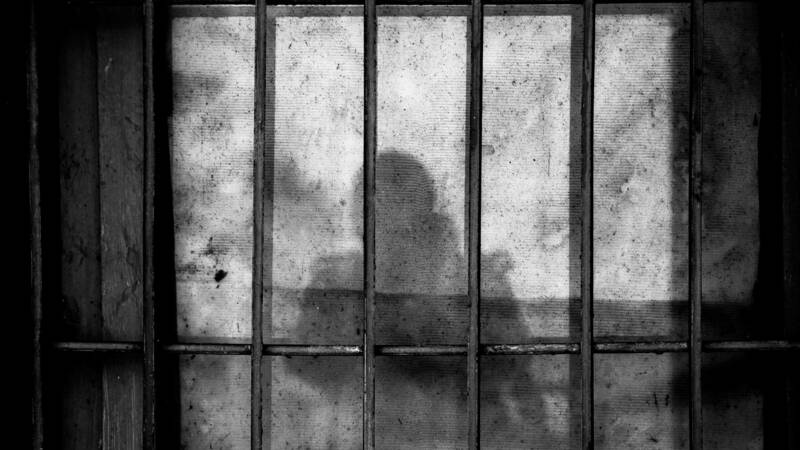My life is my responsibility. The one part of the weekly check in that I know I will never forget. The mantra captured the motivations behind each person in the peer-to-peer circle at Imani Unidad, which seemed to expand each week we were there. It expressed in simple terms the reason why so many people of different backgrounds—addicts, single moms, social workers, ex-gang members, teenagers from Juvenile Detention, and Notre Dame students—would come together. Sitting in my chair, smelling the stew that was brought for dinner that evening, I looked around the room at all the unfamiliar faces, and scooted my chair over to make room in the circle.
I grew personally from this experience as I learned that it isn't always about tangible results, but rather some of the most important service requires just presence and openness to listening and supporting those who need it. Walking into the gallery that first evening, I felt intimidated and displaced. Throughout high school I committed myself to service that was more lighthearted and, honestly, fun, whether it was coaching sports teams for those with disabilities or serving meals at my local homeless shelter. I felt that I was making a difference in the lives of others because I could physically see my offerings accepted and used by those who needed it. Because of this, it took me some time to discover that my time at Imani is just as valuable even if I cannot see the results so easily. Sitting and actively listening, I didn't feel like I was contributing to anything as my lack of experience in many of the topics kept me from being able to offer advice. I kept thinking that I could be more helpful by assisting with more tangible needs, like resumes or interview practice, to help secure employment for those looking for a job, but I see now that the members of this support group rely on these meetings, coming even when the weather is bad or they are tired after working long hours. Being able to share what's bothering them and receiving advice or even a supportive message is imperative for their mental stability and their transition back into society.
I not only offered my support to the group, but I also found that I received support during my weekly check-in. This check-in was a chance to reflect on my own life each week, making time to stop and think about where my life is going and if I liked where I was at in terms of relationships, academics, and spirituality. I have always had problems opening myself up to others, thinking that what I struggle with is trivial compared to other people's hardships, but at Imani I found that no one dismissed what anyone brought up and many of the risks that others mentioned applied to my own life, such as time management, organization, and toxic relationships. By taking the time to perform a self-assessment, each one of us could make sure that we weren't starting to go down the wrong path or returning to bad habits, and by having others also checking in it often brought up something within ourselves that we were trying to deny.
As a result of our discussion in and out of the classroom, I saw the humanity in a group of people that is so often villainized by the media. Topics we talked about like mass incarceration, black oppression, and institutional racism were made flesh when we sat in our circle at Imani. Looking past the surface with understanding and openness, I could see that they were people oppressed by the system that doesn't show any mercy. Many talked about growing up in an unstable family situation and now they are repeating the cycle. Others talked about their children and how they are trying to do everything they can to either regain custody or prevent them from being taken away. The people at peer-to-peer expressed the same goals we all look to accomplish: steady job, positive friendships and relationships, and feelings of fulfillment. I learned about the dreams that the woman next to me had once she was released. She planned to visit her son, who has been in jail for the past fifteen years, for the first time since she's finally clean. Then she decided to take the bus to Los Angeles to start a new life, knowing only her sister there. Imani fosters a community of hope and second chances, helping its participants succeed in their subsequent goals whether that is finding employment, stable housing, or mending relationships.
The concept of genuine community, another topic we described at length, is exemplified by the peer-to-peer group as they open themselves up to listening and accepting everyone's stories, focusing on someone else's risk instead of turning the conversation back to themselves. At the beginning of each class, Baye reminds everyone of the importance of participation and that there are no observers. Because everyone commits and offers a piece of themselves to the group, a community of support and acceptance forms. I found the level of participation from the entire group inspiring as everyone committed to giving their attention and advice to each other. There was one man, Barack, who was having issues with his relationships with his son, his wife, and his son's mother. Even though it took up the entire session, the group didn't move on without helping him first. This commitment to each other strengthens the support network of the peer-to- peer group, which is vital to the transition back into society.
Based on my experiences at Imani, I now understand the many sides to service. While it doesn't feel like I am physically offering that much to the people in peer-to-peer, I can see the impact that real listening and conversation can have. Problems are resolved each meeting helping people stay clean and keep them from getting into trouble once again. Getting to meet so many great people in the peer-to-peer groups and hearing them share their stories with me while we wait for the meeting to start has shown me the humanity behind the people that society tries so hard to ignore. I know now that I want to continue my education and begin to advocate for the people on the margins, educating others on the systemic problems that are large contributors to the epidemic of mass incarceration. I am encouraged to continue to serve those who have served time in jail, who are in need of assistance in the period of transition, whether that's through conversation or offering them help with job skills and interview preparation. I can continue to view those that were previously incarcerated not with a mind full of judgement, but with a heart open—through the lens of affection—supporting their recovery and encouraging their efforts to get jobs and move up in the world.
The genuine community offered at Imani Unidad offers support and assistance to many who are transitioning back into society. Through the exchange of giving and supporting, each one of us gained so much from our six weeks serving there. I discovered that service is not always enjoyable, full of laughter and lots of activity, but also just offering an ear to someone who may feel so alone. This experience encourages me to do more for my community, bridging the gap that is less than a ten-minute drive. I owe so much to the people at Imani for opening my eyes to people who come from so many different backgrounds, but all congregate for the same reason. Everyone looks to take control of their life and claim responsibility for it because, with all the risks surrounding us, waiting to catch us when we fail, we need to welcome other's support and do something good for ourselves.
Discussion Questions
- How effective is Alexis in meeting the terms of the assignment? Offer specific support for your claim.
- What virtues of discourse do you see in play in the critical reflection? Specify and elaborate.
- To what extent (if at all) does this reflection resonate with you? That is, how does it relate to your life? What are your most meaningful takeaways?

